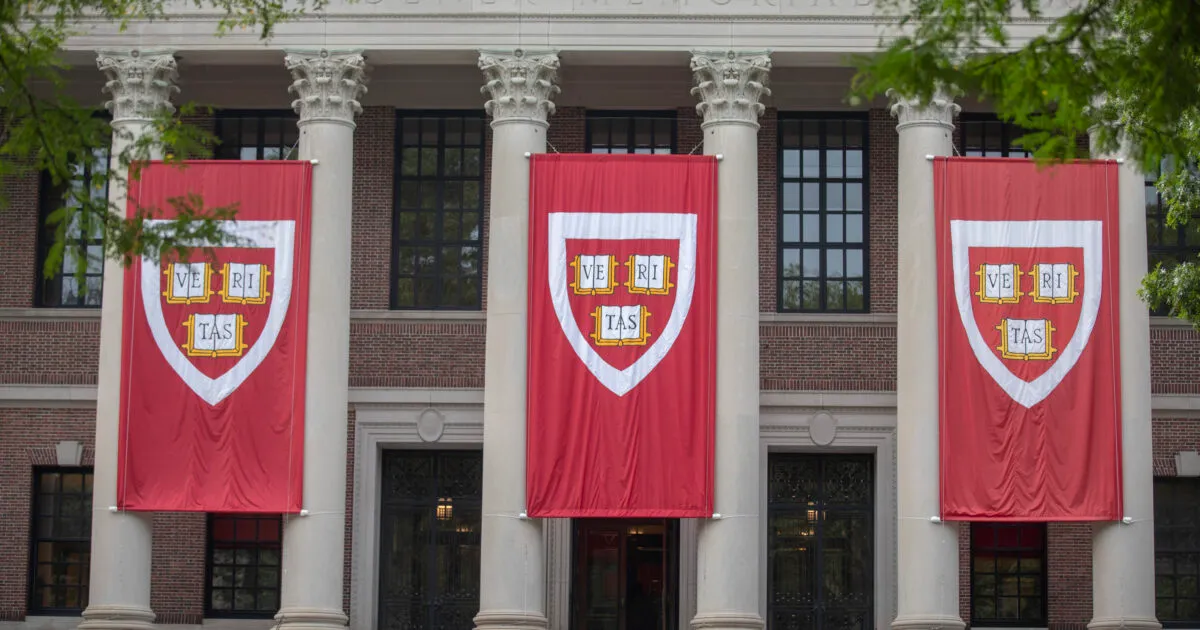Harvard University filed a lawsuit against the Trump administration on Monday, challenging what the university calls an “unlawful” freeze of more than $2.2 billion in federal funding. The suit, filed in a Boston federal court, marks a significant escalation in the ongoing conflict between the prestigious institution and the White House.
Legal Battle Begins
Harvard President Alan Garber announced the lawsuit in a letter to the university community, stating that the administration‘s actions “have stark real-life consequences for patients, students, faculty, staff, researchers, and the standing of American higher education in the world.”
The university argues that the funding freeze exceeds government authority and violates the First Amendment and other federal laws. Harvard’s legal team contends there is “no rational connection between antisemitism concerns and the medical, scientific, technological, and other research it has frozen.”
“The University will not surrender its independence or relinquish its constitutional rights,” Garber wrote in an April 14 letter responding to administration demands. “Neither Harvard nor any other private university can allow itself to be taken over by the federal government.”
Research at Risk
The funding freeze jeopardizes critical research projects, according to Harvard officials. These include studies on childhood cancer, infectious disease outbreak prediction, and pain management for injured soldiers. Research into multiple sclerosis, Alzheimer’s disease, and Parkinson’s disease could also face significant delays.
“The victims will be future patients and their loved ones who will suffer the heartbreak of illnesses that might have been prevented or treated more effectively,” Garber wrote in his letter to the Harvard community.
Government Demands
The conflict intensified after Harvard refused to comply with a series of demands from the Trump administration. These demands included eliminating diversity, equity, and inclusion programs; banning masks at campus protests; implementing merit-based hiring and admissions reforms; and reducing the power of faculty members deemed by the White House to be “more committed to activism than scholarship.”
Similar Posts
The administration also demanded that Harvard turn over all reports on antisemitism and anti-Muslim bias generated since October 2023, including drafts never made public.
White House principal deputy press secretary Harrison Fields responded to the lawsuit with a statement: “The gravy train of federal assistance to institutions like Harvard, which enrich their grossly overpaid bureaucrats with tax dollars from struggling American families is coming to an end. Taxpayer funds are a privilege, and Harvard fails to meet the basic conditions required to access that privilege.”
Broader Implications
Harvard is not alone in facing pressure from the administration. Princeton, Cornell, and Northwestern universities have also seen federal funding paused amid similar demands. Columbia University recently made policy changes, including restrictions on demonstrations and new disciplinary procedures, after the administration threatened to withhold $400 million in federal funding.
The American Council on Education, representing over 1,600 colleges and universities, has expressed support for Harvard’s legal action, stating that the administration’s actions violated due process and the rule of law.
Divided Campus Response
The funding battle has produced an unusual moment of unity at Harvard. “Nothing has united Harvard’s deeply fractured campus more,” said one university employee who was not authorized to speak publicly.
Even critics of Harvard’s handling of campus antisemitism have expressed concern about the administration’s approach. Larry Summers, a former Harvard president who previously criticized the university’s response to antisemitism, defended the institution against the funding freeze.
“An enemies list did not work out for President Nixon. It won’t for President Trump,” Summers wrote on social media platform X.
More than 100 Jewish students at Harvard signed an open letter opposing the funding cuts, stating they feel like “pawns in a broader political agenda.”
Escalating Threats
Beyond the initial $2.2 billion freeze, reports indicate the administration is considering withdrawing another $1 billion in federal grants and health research contracts from Harvard. The Wall Street Journal reported that the Internal Revenue Service is making plans to potentially revoke Harvard’s tax-exempt status, and the administration has threatened the university’s ability to enroll international students.
Massachusetts Governor Maura Healey, a Harvard graduate, called the push to revoke Harvard’s nonprofit status “outrageous” and part of a “continued playbook that Donald Trump has been using, which is to silence critics.”

As this legal battle unfolds, it raises significant questions about academic freedom, government oversight of higher education, and the future of federally funded research programs at American universities.


















